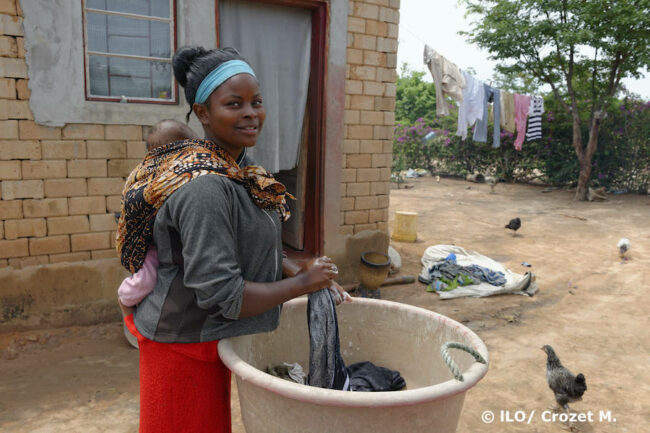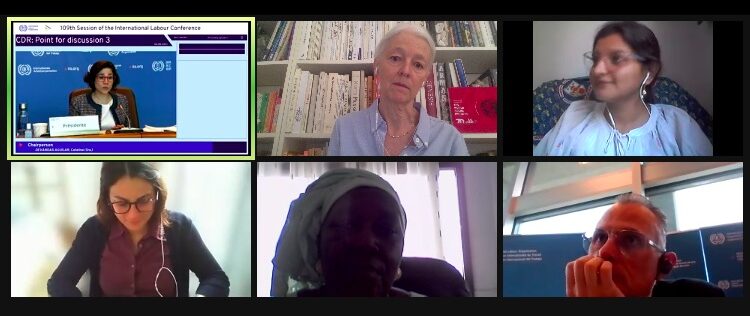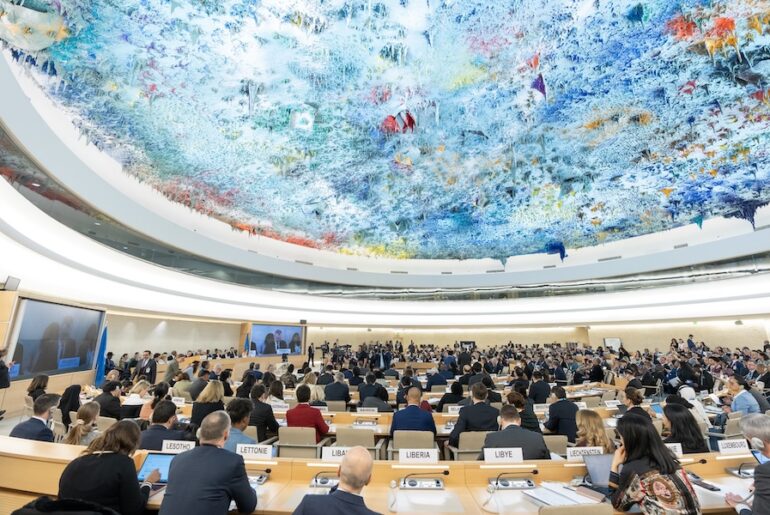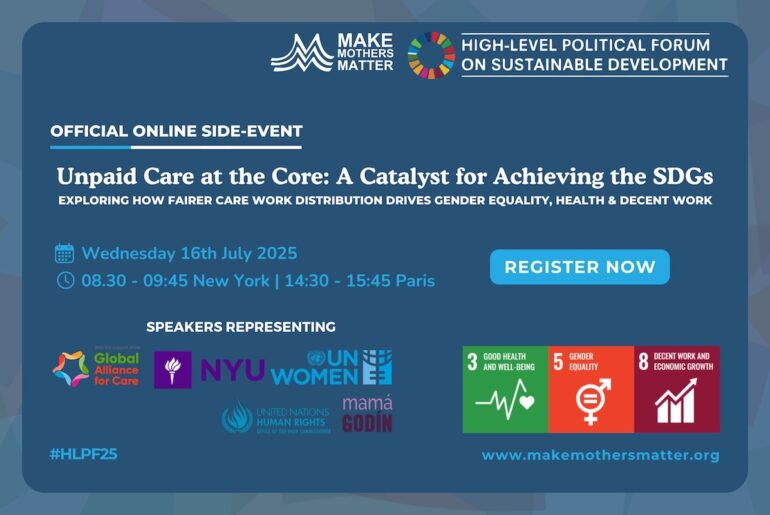Social protection for mothers and children is an investment
08.06.21
ILO's International Labour Conference - MMM's intervention stressed the critical importance, relevance, and legitimacy of realizing universal social protection for unpaid caregivers, especially mothers.

The Covid-19 crisis has exposed how the inequitable distribution of care responsibilities is a source of economic injustice for women, creating challenges that most mothers face in trying to juggle care responsibilities with paid work.
As part of the ‘decent work’ agenda, it is high time governments and employers address this issue and seriously invest in supporting women, parents and other caregivers doing this essential yet unpaid, mostly invisible work of caring.
First, unpaid care work must be recognized as work, essential work which in the long-term benefits communities and society as a whole. It is therefore also a collective responsibility.
- This means that every unpaid caregiver should have access to social protection just like any other worker. In particular, every mother should have access to social security, healthcare, pension and full maternity protection.
- Furthermore, we need to redefine “work” as a holistic concept, where both paid and unpaid work are combined. The world of work must adapt to this reality, and private companies must commit to supporting workers with care responsibilities.
Second, social protection must be considered as an investment, not as an expense that should be minimized.
Supporting caregivers, parents especially, through targeted public services AND adequate social protection is investing in people and families. Ultimately it is also about investing in children – and we know how critical nurturing care is during early childhood. It is investment with high returns, especially for vulnerable families.
To conclude, the pandemic provides a unique opportunity for systemic changes, and this begins by changing narratives:
- Unpaid family care work IS work, and a collective responsibility, hence the need for universal social protection.
- Social protection must be considered as a long-term investment.
MMM was among 7 International NGOs that contributed to the Recurrent Discussion on Social protection at the 109th International Labour Conference (ILC109).
We also fully agree with the EU that realizing Universal Social Protection “is both a right that belongs to all human beings and an investment with high social and economic returns. It strongly contributes to reducing poverty, vulnerability, social exclusion and inequalities, tackling gender gaps while enhancing political stability, fairness, solidarity and social cohesion”.

Envisioning care as a common thread to global crises
29.07.24
UN New York - Our virtual HLPF side-event brought together experts to shed light on how the various global crises we face (in particular climate change and other environmental crises,
We call for multi-stakeholder approach to recognise and support unpaid care work
21.07.24
UN New York - Participating in the meeting of the UN Economic and Social Council (ECOSOC) on care and support systems, MMM reaffirmed the principle of co-responsibility, which should underpin
The New EU Gender Equality Roadmap : A Call for Inclusion of Mothers
04.03.25
The European Commission’s initiative on a new Gender Equality Roadmap post-2025, marks a significant step forward in addressing gender disparities across the European Union. Make Mothers Matter (MMM








